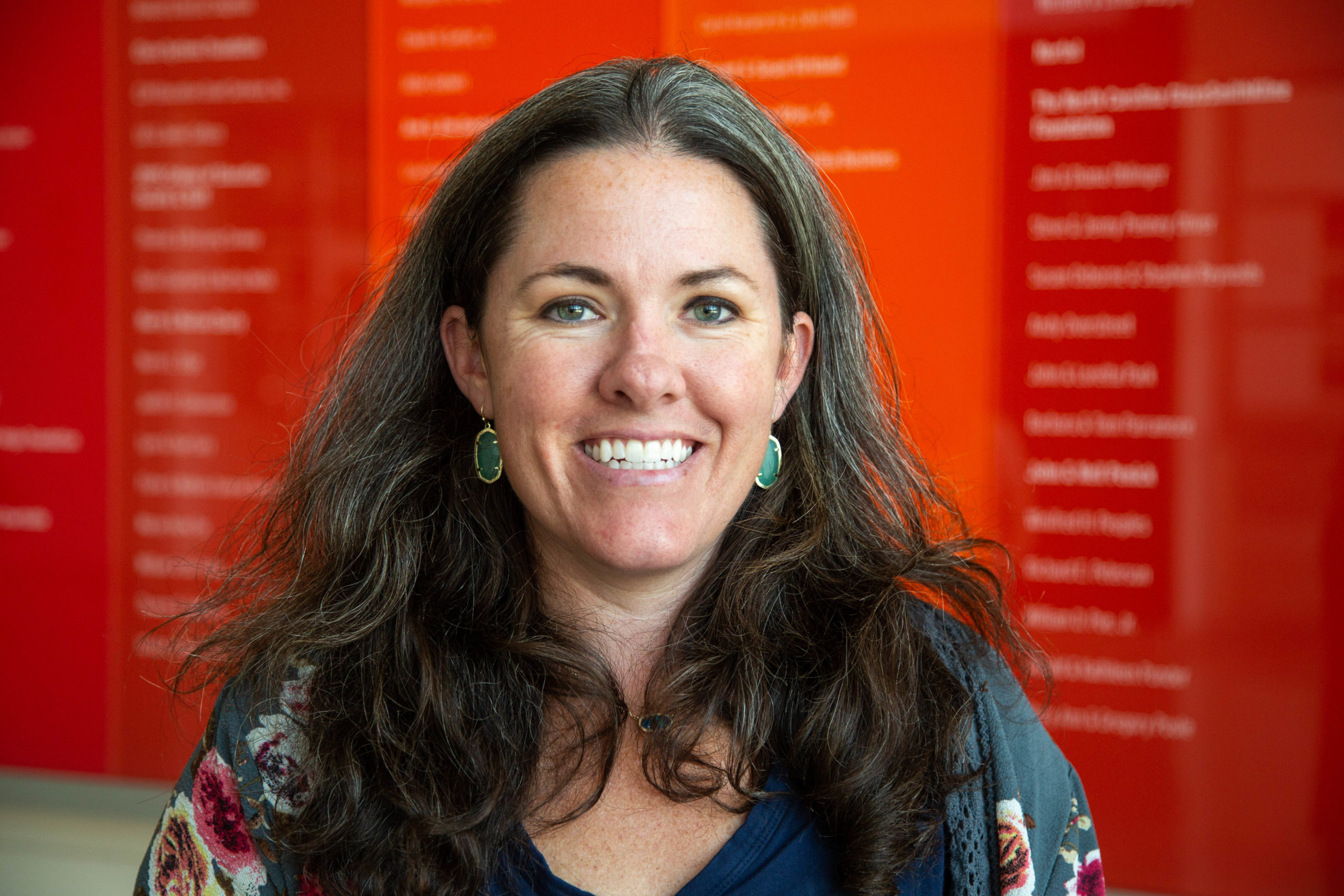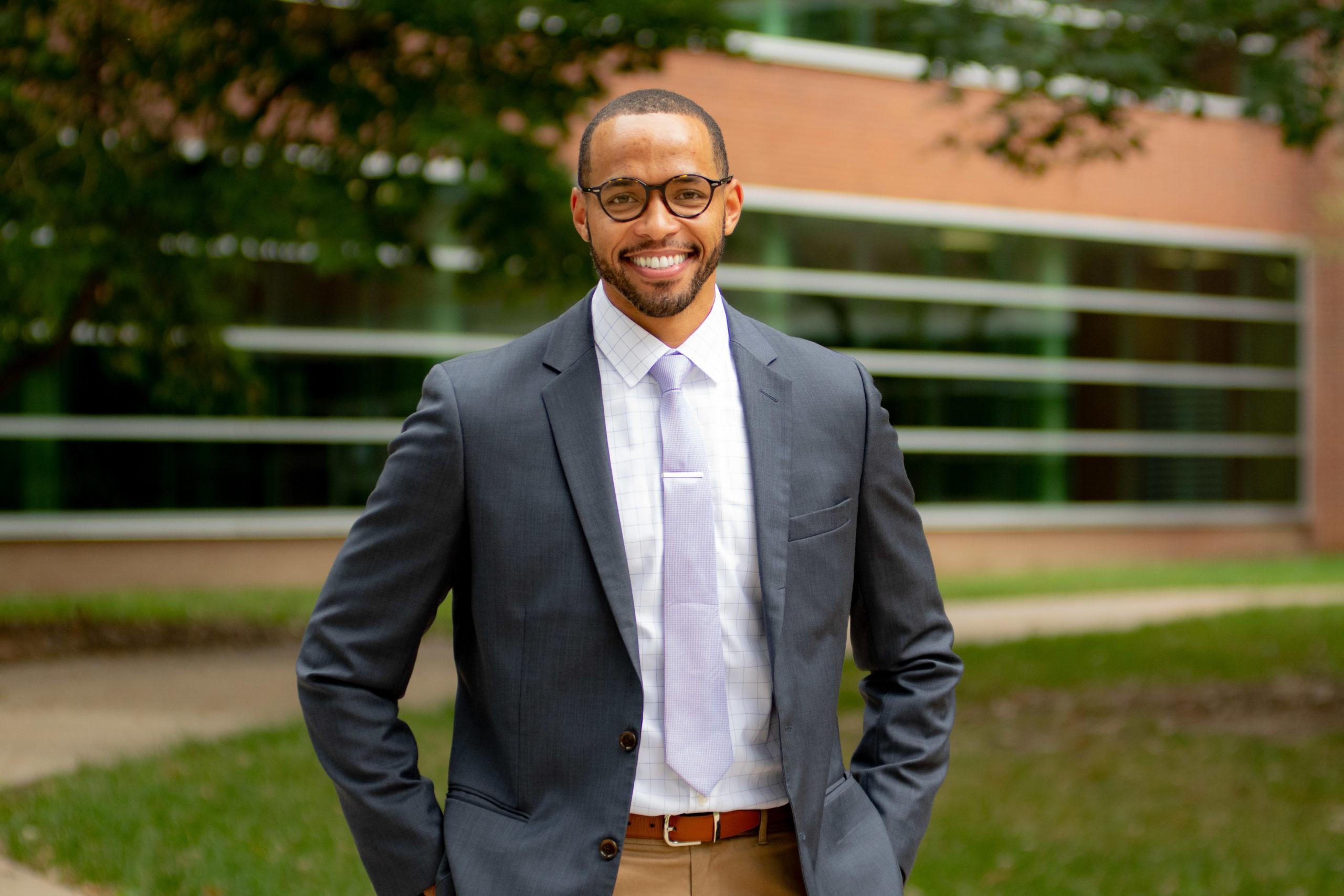The theme for this year’s Robert F. Tinker Fellows Program, which aims to promote innovation, creativity, and cross-disciplinary conversations, focuses on inclusion, equity, and access in STEM education. We are delighted to announce two Tinker Fellows in 2022.
- Heather Barker will create data exploration activities for students from middle grades through introductory statistics college courses that include datasets around social justice issues.
- Terrance Burgess will design community-centered science teaching materials and learning opportunities that affirm the multiple identities espoused by youth of color.
Heather Barker received her Ph.D. in Learning and Teaching in STEM Education from North Carolina State University in 2021 and is a lecturer in mathematics and statistics at Elon University. She credits her high school math teacher for igniting her passion for teaching and mathematics.

As a first-generation college student, Barker was “lost on how to navigate the college application process or how to choose a major.” Mrs. Sarah Bradsher encouraged her to pursue math at Meredith College, her own alma mater, and after graduating from there in 2006, Barker returned to her hometown high school in Yanceyville, North Carolina, this time as a math teacher instead of a student. Ironically, Mrs. Bradsher was now her colleague. It was an “amazing cycle,” she laughs.
Her career path has stayed close to home in North Carolina. Barker lives with her husband (whom she first met in kindergarten!) and two children on their family farm “in the same very small rural town we grew up in.” Their children are the fifth generation to grow up there. Barker is proud to raise her own chickens and turkeys and says, “It’s important that my children know where their food comes from.”
Barker went on to teach math at the community college and college levels and earned a Ph.D. in 2021. Inspired by her doctoral advisor Dr. Hollylynne Lee, she now focuses her research on statistics education at the K-12 level. According to Barker, students need statistical literacy skills to make sense of today’s data deluge, including around all the social justice issues they care so deeply about.
At Elon University, Barker teaches statistics and pre-service education courses, using CODAP as her primary data investigation tool. She helps students ask questions about equity and social justice issues as reflected in datasets, such as those from the ACLU, while acknowledging to her students that she is not an expert in these areas. Her goal is to give students both “a safe place to have these difficult conversations and the statistical tools to form and support their own opinions.”
With the aid of Elon’s Center for Race, Ethnicity, and Diversity Education, Barker and a colleague developed the Diversity, Equity, and Inclusion (DEI) Initiatives Inventory for Introductory College Statistics Courses. She is currently analyzing the data from over 300 survey respondents from 41 states and 6 countries who reflected on their institution’s priorities related to DEI, how they incorporate DEI tasks into their current instruction, and constraints they face in doing so.
As part of her Tinker Fellowship, Barker will create activities and datasets with a DEI pedagogy, using CODAP as the data analysis environment.
Terrance Burgess is an assistant professor of science education at Michigan State University. He earned a Ph.D. in Teaching and Curriculum with a focus on Science Education from Syracuse University in 2020. An extracurricular opportunity coupled with his school experiences jumpstarted his career path.

Burgess grew up in Roanoke Rapids, North Carolina, and when he matriculated at the University of North Carolina at Chapel Hill, he realized that many of his educational experiences were vastly different from those of his peers. Having studied geology, he found his identity as the only Black undergraduate student pursuing the degree particularly challenging. Many of the resources that would foster a sense of community for him, such as study groups and mentoring, were not always accessible, contributing to feelings of nonbelonging in the department and greater science community.
On weekends and summers, Burgess volunteered at the university’s Upward Bound Program. This was where he recognized that the UB students, who came from underserved schools and communities in the area, shared many of the same educational experiences he’d had. Through the program’s multiple supports designed to ensure students’ success both in the classroom and in their broader communities, he came to understand that education is more than just an academic endeavor, it’s “all encompassing.”
This realization, he says, led him into the classroom.
With an undergraduate degree in geological sciences, Burgess taught high school biology, Earth science, and environmental science for four years in Durham, while simultaneously earning a master’s in education. Considering his own experience and those of his students, he headed to Syracuse University in 2015 to study equity and identity processes in science teaching and learning. His dissertation investigated the impact of classroom instruction on the academic, racial, and science identity formation of students of color in an urban elementary school.
At Michigan State University, Burgess now instructs pre-service elementary teachers as well as graduate students. He has used several Concord Consortium resources, including geoscience models from our GEODE project, especially during the shift to virtual learning. These high-quality resources, he says, “bolster [students’] content knowledge and confidence in planning and enacting meaningful science instruction.”
Burgess believes that it’s critical to offer relevant and identity-affirming science instruction in the elementary grades so that more historically underrepresented students (i.e., students of color) feel that their multiple identities are adequately centered and centered within their STEM experiences such that they are empowered to enact change within their communities.
When asked what most excites him today about education, he says, “the innovation and wealth of knowledge that children have yet to teach us.” Burgess continues, “I am thrilled to support teachers in thinking of how to capture such knowledge to not only teach science, but to view their teaching of science through the lens of social justice and change.”
Burgess will focus his Tinker Fellowship on describing and planning for equitable and culturally relevant science instruction for youth of color.
The Concord Consortium envisions a world where all students and teachers use effective digital resources to engage deeply, justly, and equitably with STEM concepts and practices in varied personal, cultural, and social contexts. We are thrilled to welcome the ideas, insights, and challenges from our two Tinker Fellows as we work towards our mission to innovate and inspire equitable, large-scale improvements in STEM teaching and learning through technology.